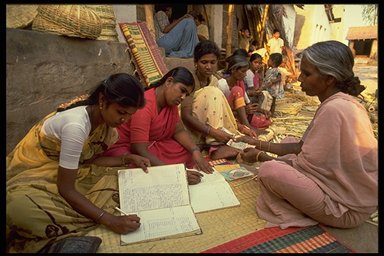Cambodia Country Strategic Plan (2019-2023)
<p>Cambodia has made great strides towards Sustainable Development Goal (SDG) 2 but needs to do more to achieve zero hunger by 2030. The Government’s mid-term and strategic review (MTSR)13 of the
<p>Cambodia has made great strides towards Sustainable Development Goal (SDG) 2 but needs to do more to achieve zero hunger by 2030. The Government’s mid-term and strategic review (MTSR)13 of the
<p>The objective of World Water Day 2011 is to focus international attention on the impact of rapid urban population growth, industrialization and uncertainties caused by climate change, conflicts and natural disasters on urban water systems.
<p>Against a backdrop of global economic uncertainty, this issue of The State of World Fisheries and Aquaculture highlights the major role and challenges facing fisheries and aquaculture worldwide.
Today, there is a growing consensus on the cross-cutting contribution of resource rights to reducing poverty, achieving food security, resolving resource conflicts and providing incentives for sustainable resource management and as a contribution to democratic development.
This report represents a first systematic review of activities related to climate change conducted by the United Nations World Food Programme, including programmes, capacity development and technical assistance efforts.
The FAO has released a report entitled "Managing Forests for Climate Change," which examines the role of forests and sustainable forest management in climate change mitigation and adaptation. The report describes the FAO's integrated approach to sustainable forest management and outlines the ways forest management can help tackle climate change, including through carbon sequestration, strengthen

<p>This is a comprehensive report on rural poverty, its global consequences and the prospects for eradicating it. It consists of updated estimats by IFAD regarding howmany rural poor people there are in the developing world, poverty rates in rural areas and the percentage of poor people residing in rural areas.</p>
Gender equality is an essential component of sustainable economic growth and poverty reduction. Equitable access to more and better jobs in rural areas enable rural women to become effective economic actors and engines of growth; as well as to produce or aquire the food, water, fuel and social services their families need.
The FAO has released new Technical Guidelines for Responsible Fisheries on the Ecosystem approach to aquaculture (EAA). The EAA is a strategy for the integration of the activity within the wider ecosystem such that it promotes sustainable development, equity and resilience of interlinked social-ecological systems. As such, the focus is not what is done, but rather how it is done.
Climate change can be mitigated in several ways, but most strategies emphasize reducing greenhouse gas emissions by reducing energy use and switching to energy sources that are less carbon intensive than fossil fuels. This publication explores the scope, potential and implications for using woodfuels to replace fossil fuels and thereby contribute to climate change mitigation.
This document is part of the publication series of FAO